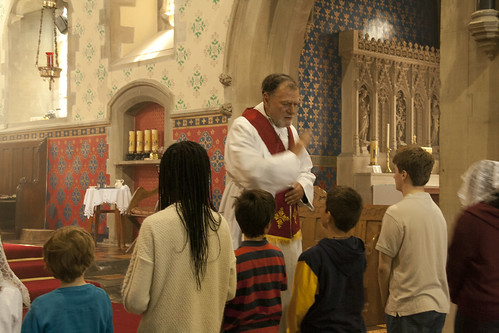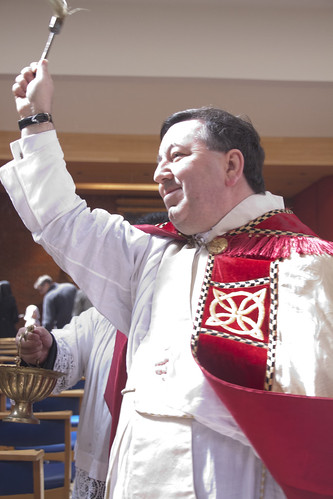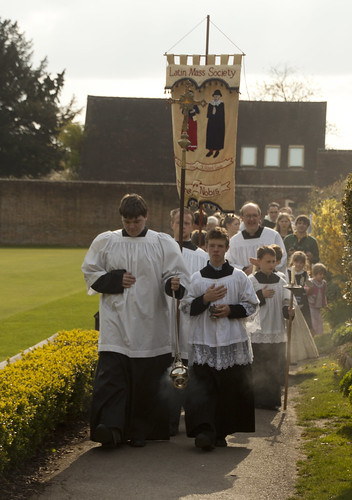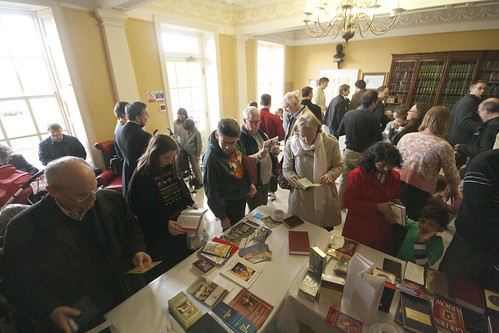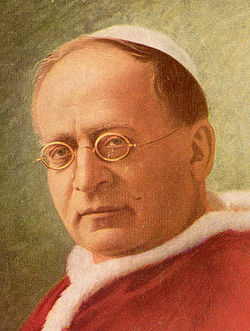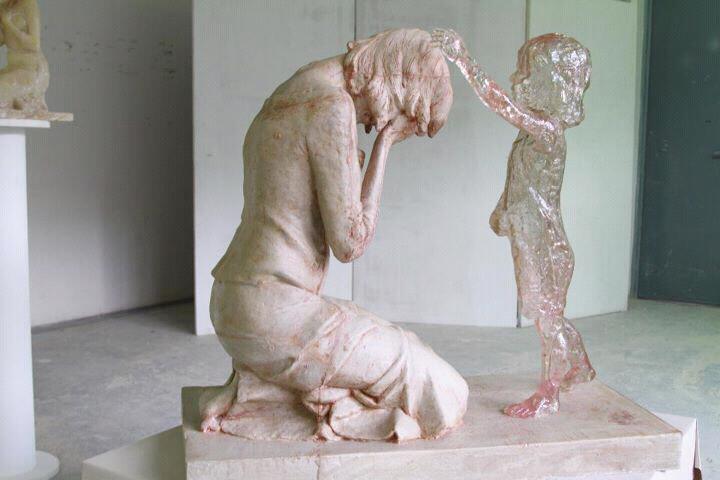Although from rather different contexts, this image of William Blake's, and this poem of Wilfrid Owen, which is about the Great War, seem to me to illustrate something going on in the Catholic Church today. They are about the killing of the young, particularly a young man, by the old, particularly an old man.
So
Abram rose, and clave the wood, and went,

And
took the fire with him, and a knife.
And
as they sojourned both of them together,
Isaac
the first-born spake and said, My Father,
Behold
the preparations, fire and iron,
But
where the lamb for this burnt-offering?
Then
Abram bound the youth with belts and straps,
and
builded parapets and trenches there,
And
stretchèd forth the knife to slay his son.
When
lo! an angel called him out of heaven,
Saying,
Lay not thy hand upon the lad,
Neither
do anything to him. Behold,
A
ram, caught in a thicket by its horns;
Offer
the Ram of Pride instead of him.
But
the old man would not so, but slew his son,
And
half the seed of Europe, one by one.
I've been blogging a lot about
Mgr Basil Loftus, and
Clifford Longley has come into my sights too recently; others who have include
Dr Casey and Stuart Reid, before them was
Paul Inwood, the inimitable
Tom MacIntyre and
Fr Leo Chamberlain. (
Br Edward Egan is hardly worth mentioning.) They have something striking in common: they are all, I think, over 70 years old, or getting on for it. I'd like to make a wider point about the phenomenon of which they are (perhaps minor) examples, and of which I, growing up as a cradle Catholic in the 1980s, and since then, have long been acutely aware: the fear and loathing of many of the older generation of Catholics towards young Catholics who, often without knowing much about the historic changes in the Church, appear to be seeking some measure of restoration of the ruins they see all around them.So what I say below needn't be true of each of these figures, but seeks to explain why so many old men keep cropping up in this blog. There is a definite phenomenon of the Angry Old Man.
In some cases they were, when young, fire-brand liberals; in others, they didn't much like the changes of the 60s and 70s, but felt obliged, sooner or later, to make some kind of accommodation with them. In either case, the idea that important aspects of those changes (important in their effects on them, not necessarily the theologically most significant), were unnecessary or mistaken, is intolerable. Intolerable because only if the changes were right and inevitable were their actions in the past, actions of destroying the tradition, destroying altars and churches, destroying vocations, destroying the simple faith of the pious, or just going along with this destruction, would be justified. If they were not justified, then they would be subject to unbearable guilt, and even, they might fear, to public shame and humiliation.
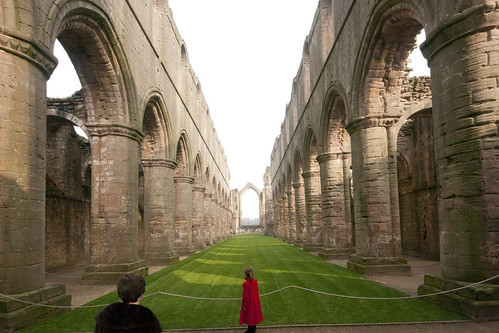 |
| In a very real sense, this represents a great renewal of the Church. Don't you agree? |
There is a similar phenomenon at work in the debate about abortion. Women who have had abortions, men who have helped or bullied women into it, are often desperately, indeed pathetically, eager to convince others, but most of all themselves, that abortion in similar circumstances is inevitable and right. Such people are naturally at the forefront of the pro-abortion movement, and dealing with them is one of the great challenges of pro-life work. They are trapped in a prison of suppressed guilt, from which the only escape is repentance. Repentance, ideally with sacramental confession, can transform such a person: having made that step, which in a way is always so obvious and yet seemingly so impossible a thing to do, can suddenly make the entire world look different. Suddenly they can see things as they are.
In the Church, the people who wrecked the altars and burned the old vestments and introduced guitars and told the children that Jesus is only alive in our hearts, as these people grow older, they are frequently not quite confident that they did the right thing. They were, after all, brought up with the old catechism and the old Mass. The great vindication of their work of destruction would have been a reciprocal appreciation of the Faith by the World, and the enthusiasm of new generations for the free and easy Church they tried to create. But after an initial flush of apparent success, this vindication has stubbornly failed to materialise. A horrible suspicion in their minds needs to be constantly squashed, that perhaps, just perhaps, they made a mistake.
So it is intolerable to them above all to hear the young questioning these changes, and even beginning to undo some of them. Those young people, often in their innocence of the historical significance of what they are doing, must be humiliated, ridiculed, and persecuted. After all, a reviled subculture of young people in the Church doesn't have much significance, does it? They've just been watching too much
Brideshead Revisited on TV.
But it gets worse, we have a Pope now who seems to sympathise with them, and however many young men are thrown out of seminary for appearing to believe in the
Real Presence or liking the Traditional Mass, there seem to be more
knocking on the door every year. And the intellectual tide too seems to be turning, there are more and more books being published by conservative Catholic scholars showing that one after another of the innovations was poorly thought through, or based on mistakes, mistakes about anything ranging from
human psychology to the
archaeological record left by the early Church.
I should say, in passing, what a joy it is to meet and work with the older generation of the traditional movement. People sometimes characterise them as embittered and battle weary, but that is not my experience. Of course, things are beginning to go their way, which always helps. But these are people who maintained their integrity, or have rediscovered it, who lived through the horrors without giving in to the horror. Their obedience has been learnt by suffering. They have much to teach us, and are more than willing to pass it on. This is how the Church is supposed to work. (Here's one illustrative
obituary, and here's
another.)
 |
| Quarantine zone for retired liberals. |
The Catholic Church is inevitably run by the old. The retirement age is far higher than in the secular world, if it exists at all, and seniority usually implies, simply, seniority. This is normally a good thing: the Church moves slowly, and should do so. The flip side of this is that the Church cannot recover from a fashionable mistake as quickly as other organisations. In music, fashion, architecture, and government, the silly fads of the 1960s have left their mark, sure, but they aren't still being officially enforced: the people who stuffed them down our necks have long since headed for the golf course. This process has only got going in the Church in the last decade, but because of the importance of discussion and ideas, we have an even longer time to wait, with septuagenarian and octogenarian columnists and letter writers who are clearly going to shut up only when the coffin lid is nailed down.
I feel sorry for these angry old men (less often women), but opposing them is, unfortunately, necessary. Since they are engaged, to a greater or lesser extent, in an endless stream of attacks on the traditionally-minded young, to stand by and do nothing, when you can do something, would be to consent to the ridiculing and marginalisation of another generation of Catholics. It is true that these oldies have zero clout on the internet (with the partial exception of Paul Inwood), but they dominate much of the Catholic dead-wood media, and there is a pool of offline Catholics who still read that stuff, and
non-Catholics go there to see who is who among Catholic intellectuals.
It is important that young Catholics today get to see and hear reasoned responses to the liberal attack on them and their Catholic instincts. Apart from anything else, it is important for their mental health. Yes, you are not mad: other people have noticed too, that there is indeed something very rum about the fact that every church you go into has had the altar ripped out and replaced with some kind of table in a different place. That mainstream Catholic books don't refer to any document published before 1962 apart from
Rerum Novarum and the Bible. That there seems to be a lot of evasion on certain topics where we desperately need crystal clarity, like the morality of contraception, the necessity of baptism for salvation, and Church-state relations. And that influential Catholics of a certain age become puce with rage if you so much as mention words like 'mantilla', 'indulgence', and 'infallibility'.

When these angry old men are given the prestige of publication in the Catholic press, and when they use this to to attack traditional Catholics, undermine the teaching of the Church, or distort the meaning of her documents, I will continue to respond. Yes, it a pathetic attempt at self-affirmation, but it is harmful to souls, and personally hurtful as these writers may find being contradicted, they must be opposed.
So here's my message to the over-seventies liberal Catholics with an itch to write in the press: you are not going to get everyone to agree with you and thereby sooth your uneasy consciences. On the other hand, if you want a quiet life, all you need to do is shut up.
